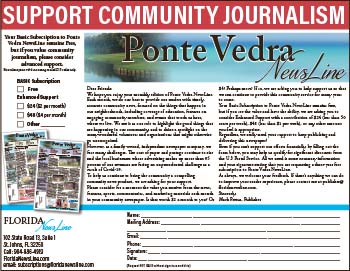By Martie Thompson
editor@floridanewsline.com
Paula Roderick’s life story could easily be made into a page-turner book. From her youth in a small farm town in Ohio where she didn’t travel outside the state until becoming a Rotary Youth Exchange student at age 16, to a distinguished military career that included many female “firsts,” the stories are numerous and noteworthy. But she believes that the most important thing she has ever done is mentor youth exchange students for Rotary International.
It all began with her own youth exchange experience in 1966 when she lived in Skelleftehamn, Sweden, 60 miles south of the Arctic Circle. When she returned home, her parents relocated to Florida and she began her senior year at Winter Haven High School with her fellow students believing her to be a Swedish student there on exchange, so strong was her Swedish accent.
After graduating from the University of Florida with a political science degree, and right in the middle of the Vietnam War, Roderick joined the United States Air Force as an officer. She points out that at this time women made up less than 2 percent of the military overall. In time, she married Major John P. Roderick, USAF, in Alexandria, Va., whom she says she knew she would marry after their first date. Today, they are both retired lieutenant colonels and the proud parents of daughter Kati, whom they adopted from Russia 24 years ago.
1) Why did you want to be a Rotary Youth Exchange student?
It’s very difficult to explain why you want to do this — but to someone who also wants to be an exchange student, they understand. I say we are all “Exchangers” and it is like a calling. It’s not necessarily about the travel, it’s more about discovering other cultures and other people … but more importantly about discovering ourselves.
2) What are the benefits of being a Rotary Youth Exchange student?
Students who are exchangers don’t really change when they come back from overseas, but they do grow up very quickly. They learn what they are capable of doing on their own, despite having a support network. We find that these students mature quickly and have improved judgment, decision making abilities and self confidence. They tend to be more successful with college interviews and college scholarship applications because of this maturity.
3) Can you share a memory from your time in the Air Force?
There are so many. I was one of the first 15 original air traffic training officers at the Air Force Academy in Colorado Springs at the time when women were being integrated into the service academies. I worked in Washington D.C. as the first woman officer assigned to the Air Staff (HQ USAF) at the Pentagon and later had the opportunity to work with General Colin Powell when he was a one-star general. Also, during the Reagan administration, I had a front row seat to the initial talks with the Soviets that were the precursor to talking about more important things, like the arms race. During my second tour of Germany, I was the first, last and only woman to serve as flight commander, 86th Missile Wing, for the Ground Launch Cruise Missile. Ironically, when I returned to the Pentagon for my final tour, my job by that time was to get rid of the very missiles I had commanded.
4) What do you enjoy doing in your spare time?
I am a voracious reader and I read a minimum of three books a week. I’m also the Outbound Chair for Rotary District 6970’s Youth Exchange Program, responsible for recruiting, selecting and training high school students from our district to go overseas. Our family has hosted nine exchange students and we enjoy visiting and being visited by them.
5) If you could take three items (not people) to a deserted island, what would they be?
I’d take my e-reader. Then my practical side would need to bring a fire starter. And finally a surfboard, so I could get off the island. If I couldn’t get off the island with the surfboard, at least I could be entertained!
Photo courtesy Paula Roderick
Paula Roderick







